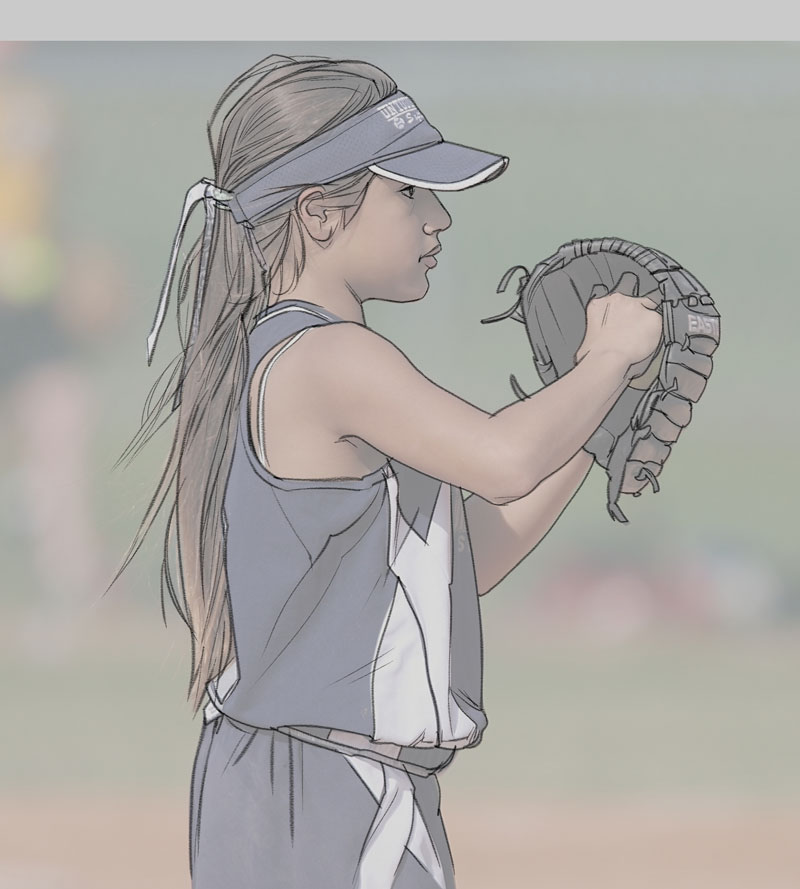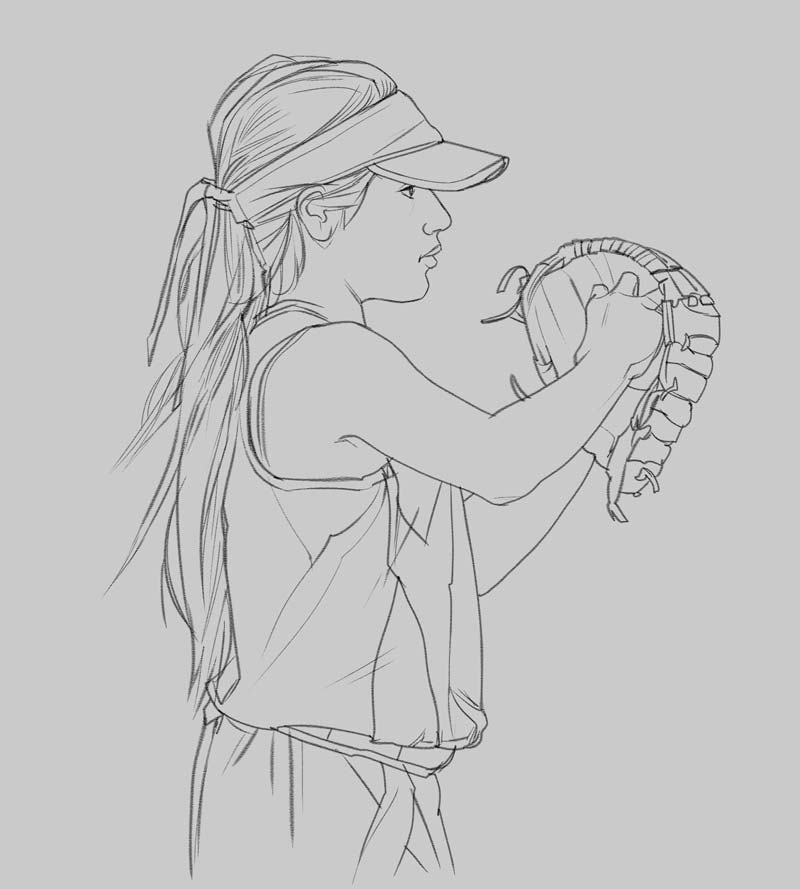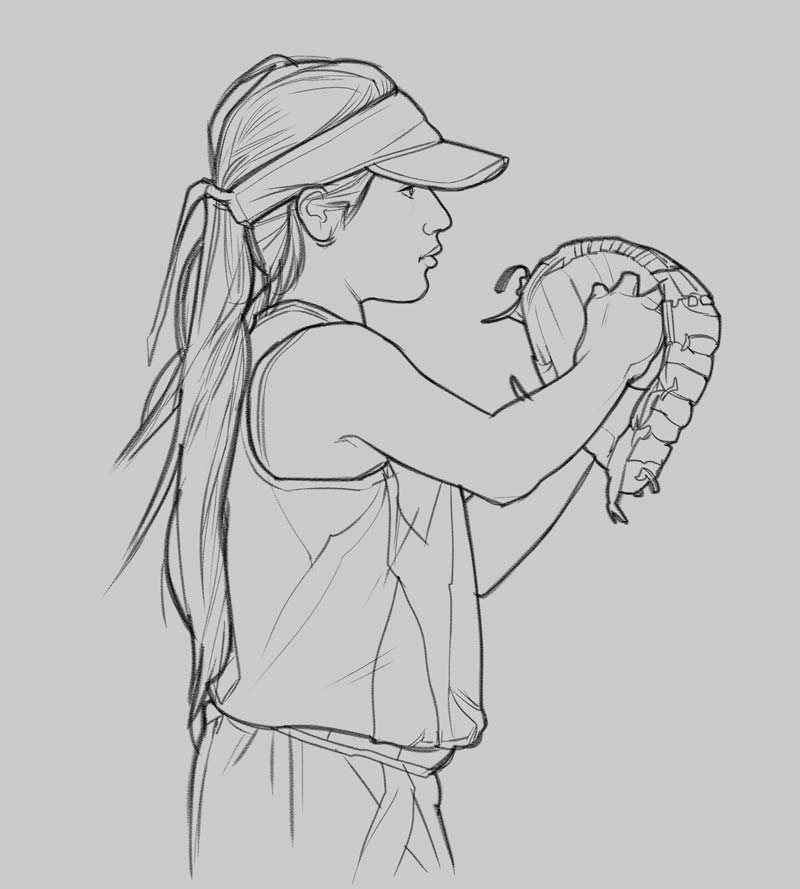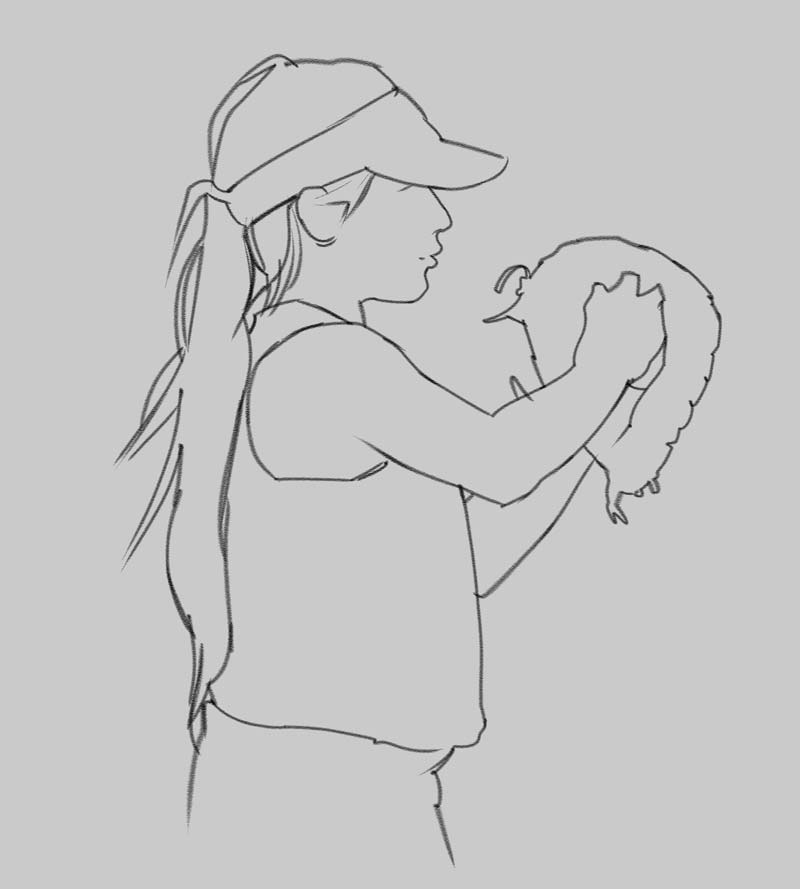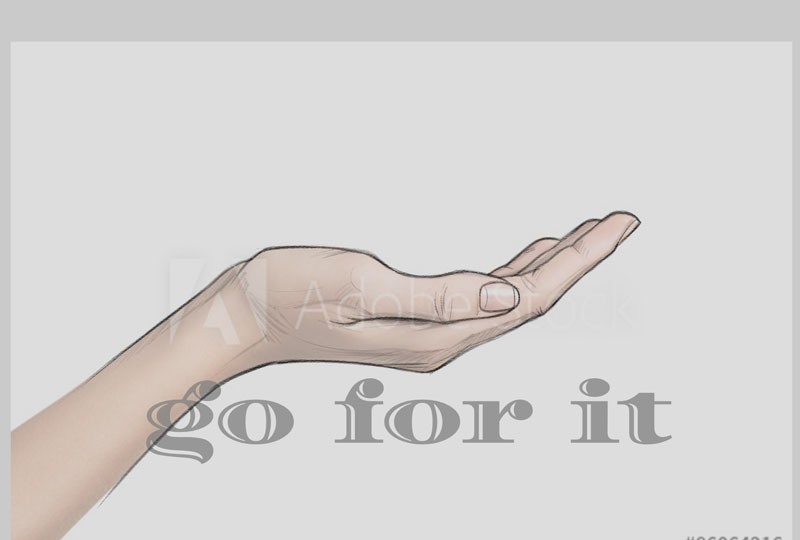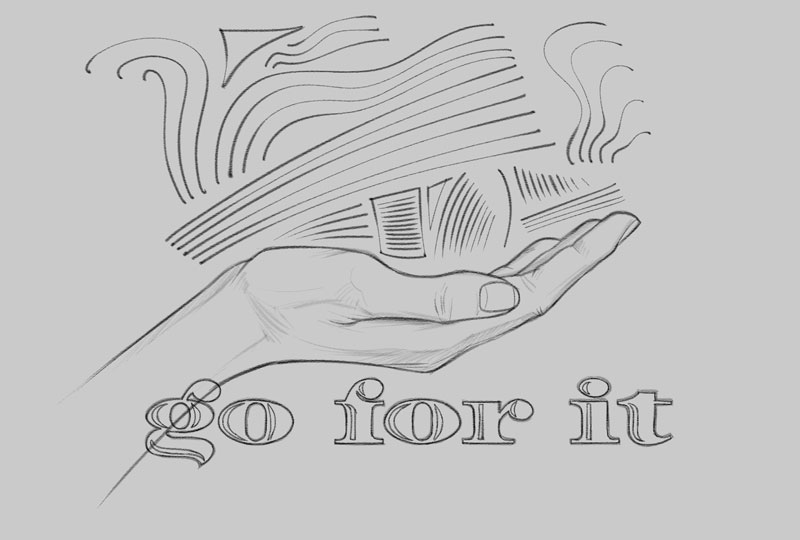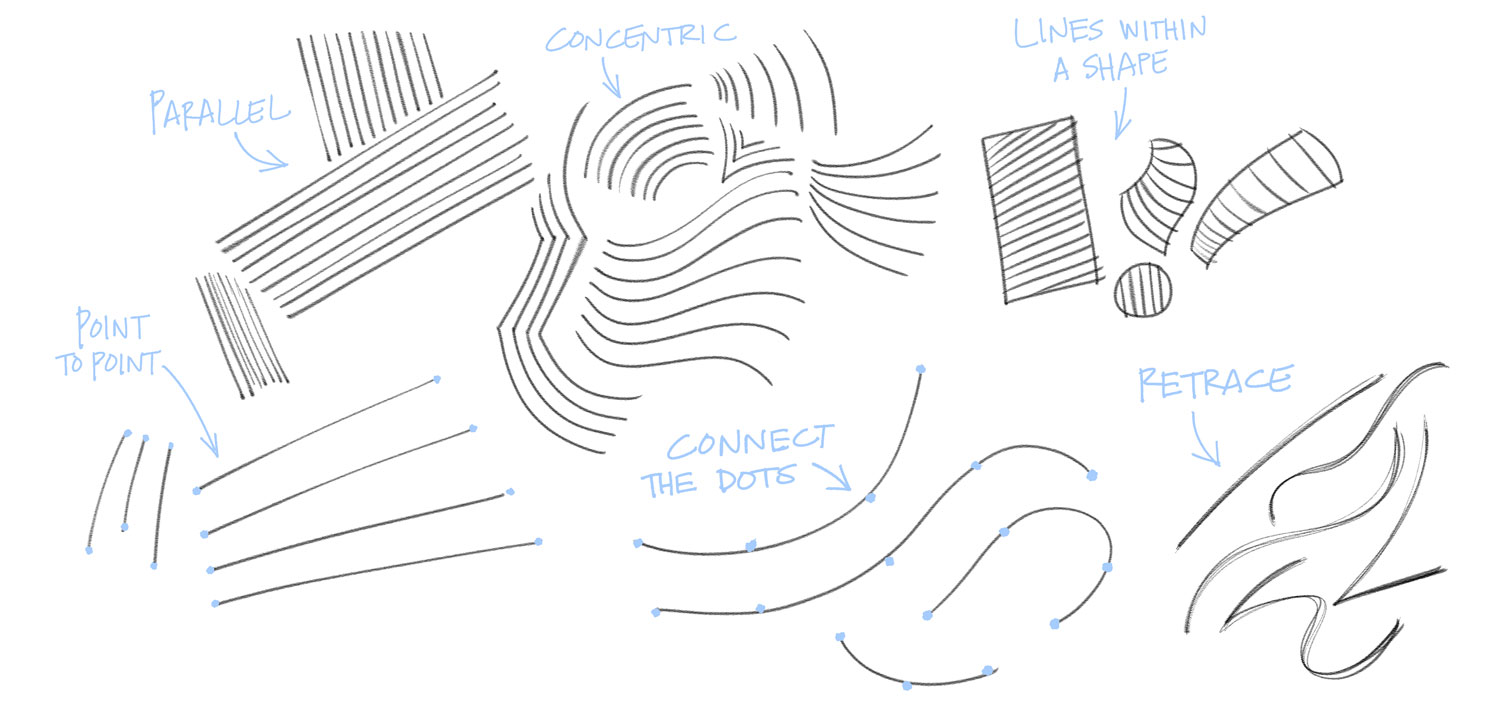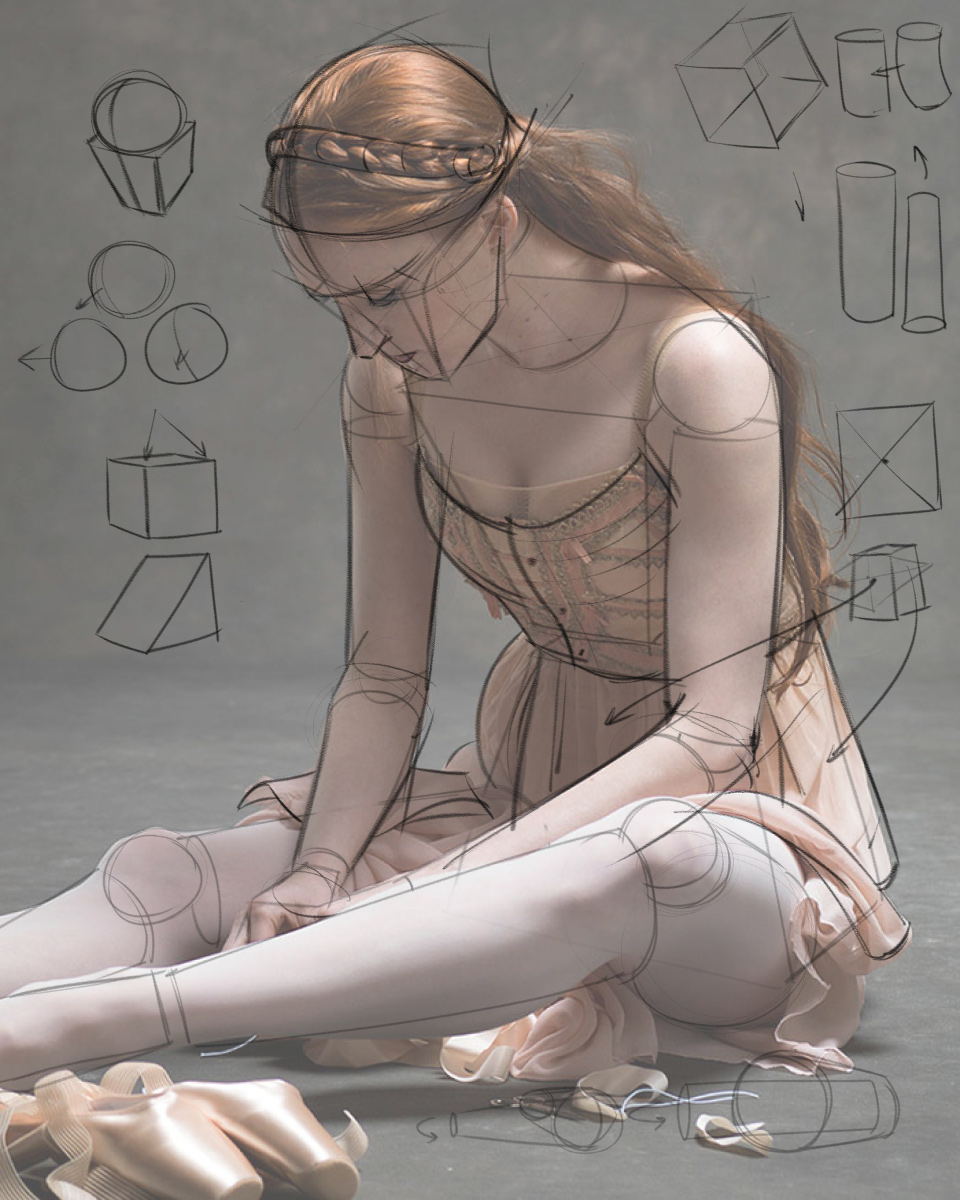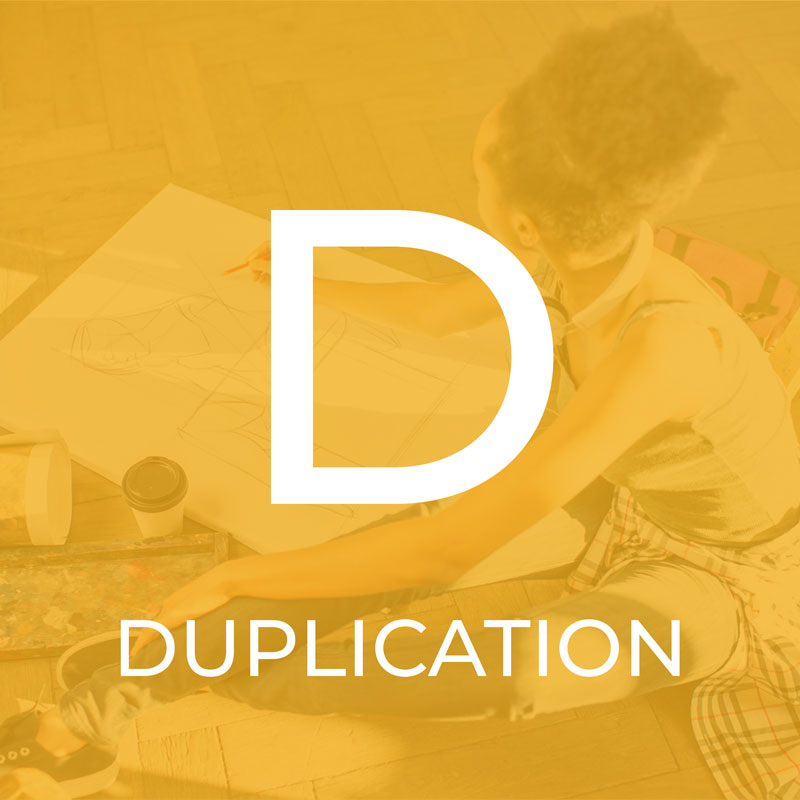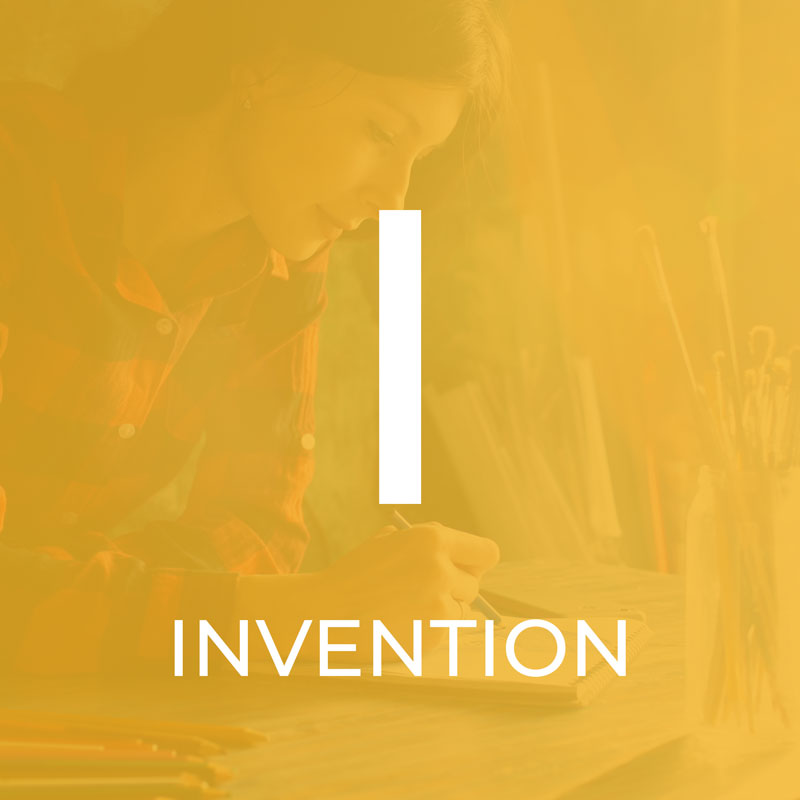< THE ART D.I.E.T.
Tracing
Give yourself permission to rediscover the joy of tracing
As kids we traced all the time, but soon the day came when we were encouraged to “try drawing it on your own”. Well, our parents were simply moving us on to ‘Duplication‘, and somehow we left ‘Tracing‘ behind as if it were some kind of awkward, embarrassing stage we should quickly forget. As soon as we learned that copying others’ work is bad, tracing became plain old taboo. But as artists, tracing is an incredibly helpful exercise. Because we don’t have to dedicate all the brain power that Duplication requires, we can let our mind focus on other important skills like line weight and line quality. And while we meander over our subject matter, our brain is quietly recording valuable data about the real world that is almost impossible to invent on our own.
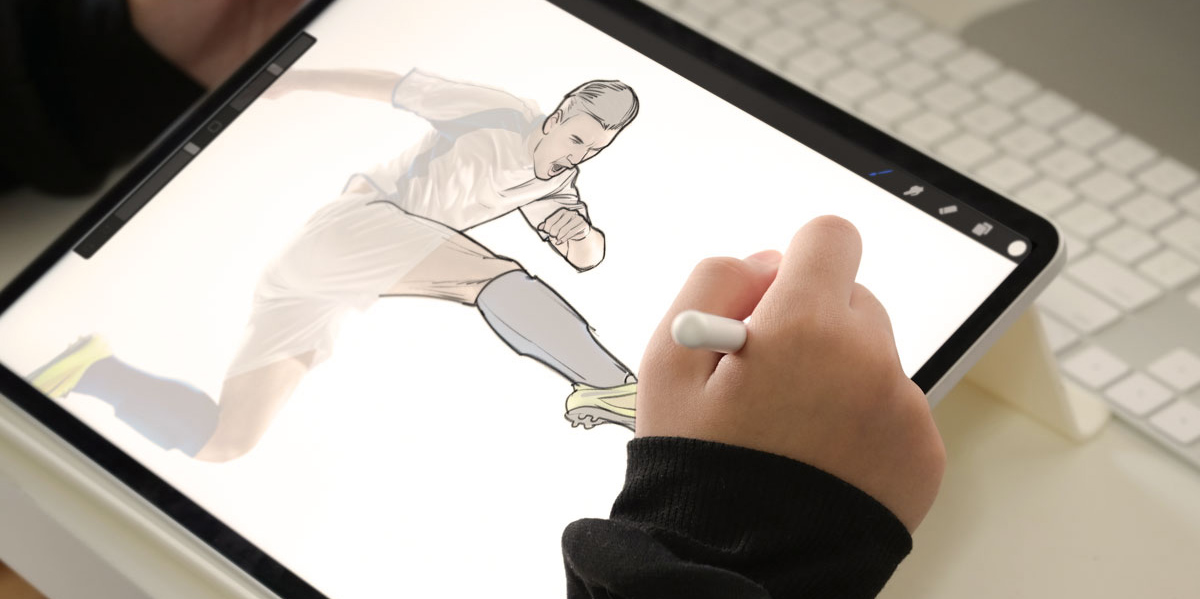
WHAT TO FOCUS ON WHILE YOU’RE TRACING
Make sure your tracing time is productive. Focus on one or more of the following skills every time you trace.
Line Weight
Line weight is all about establishing a hierarchy of importance. When you look at an outline for a speech, bold type and indentations quickly tell us what the title is and how many main points there are. All other details are secondary. If you only had 10 seconds to see it, you should be able to quickly glance at a properly structured outline to understand the general idea of the speech.
Similarly, if a complex drawing has a well defined line weight structure, we should be able to quickly see important things (like how many characters there are) before having to process secondary details (like what the characters are wearing).
How to do it:
Think from important to unimportant. Important elements (whether large or small) should have thicker lines, while less important shapes and details should have thinner lines. No need to go overboard with the weight variations… just enough to help the viewer distinguish who and what are the important elements in the scene. If you only saw the thicker lines you should have a fairly good idea of what the image is about. Flip through the three images of the baseball girl to see how major shapes can be established through line weight.
Not every client drawing you make will need such an obvious weight heirarchy, but when doing tracing exercises, this is a crucial skill to be able to master so that you can control how major forms get digested by the viewer.
Line Quality
Line quality separates the amateurs from the professionals! A seasoned artist will always have confident, beautiful lines that keeps viewers’ attention and makes every piece unique. Even if a drawing is accurate, poor line quality can sap the energy from it’s subject matter.
How to do it:
Before you start drawing or tracing, do the line quality excercises listed in the table below. Even spending just one minute on these exercises at every session will get your mind and body in the right zone. Remember to draw from your shoulder and not your wrist. This will allow your hand to move in large sweeping motions and create better arcs and curves.
In each of these exercises, practice lines that vary in weight. Do thick-to-thin, thin-to-thick, thick-thin-thick, and thin-thick-thin (That’s very confusing written out but you get the idea). Tracing typography is a great way to practice line quality!
| Exercise | Goal | How to do it |
| Parallel lines | Create new lines at the same angle as existing strokes | Create a straight line, then draw similar lines at the same angle |
| Concentric lines | Create new lines at an offset to existing strokes | Create a curved line, then draw several new lines at |
| Lines within a shape | Accurately fill a shape with parallel lines | Create a closed shape, then fil it will parallel or concentric lines |
| Point-to-point | Hand-eye coordination to accurately start and end at specific points | Create a sets of points at varying distances, then connect them |
| Connect the dots | Draw a smooth curve that passess through all points | Create a series of points that follow an arc or path, then draw a smooth, curved line that passes through each point |
| Retrace | Accurately duplicate the same straight or curved line in the same location | Draw a line or curve, then retrace it 5 or 6 times, testing how accurately you can match the original line |
Simplification and Structure
“The challenge is to maintain your mental image in the face of the overwhelming force of observed effects.” – James Gurney
Tracing is a great way to practice simplifying complex forms. This is especially helpful when learning anatomy or when drawing complex structures like hair, fur, feathers and foliage.
How to do it:
Before you start tracing, decide if this tracing will be about structure. If so, ignore secondary or incidental elements and just draw underlying shapes. Try squinting your eyes before you start tracing. Secondary details will disappear and you’ll only be left with the big volumes you want to draw. Another way to approach it is to imagine having to sculpt what you see out of a block of clay. You would first have to chunk out the large masses and volumes before sculpting out the small details. Those large volumes are simplified representations of your source material.
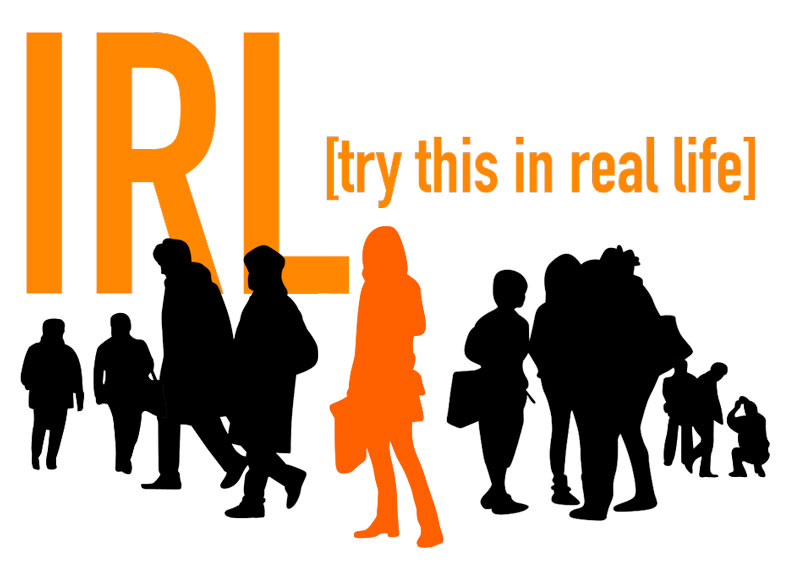
You can train your brain to me more observant by doing these exercises everyday, while you’re on the bus, when youre waiting at the doctor’s office, or during a really boring office meeting.
- Try to imagine various objects around you as a collection of basic primitive shapes (sphere, cube, cone, cylinder)
- As you observe your environment, think about how many details you could leave out of an object before it becomes unrecognizeable. This would be what you would draw if you were tracing for simplification.
- Start paying attention to the sweeping curves and strong lines that make up the letters on signage. Get your brain used to appreciating how letterforms are made and try to break them down into simple shapes in your mind.
Remember to respect other artists’ work!
Tracing should be used primarily as an exercise. Your ultimate goal should be to create something new from your source material. So if you’re building a portfolio or doing work for a client, make sure that you don’t claim traced material as your own unless you have specific permission from the owner of the original content.
METHODS of the art D.I.E.T.
Once a week, focus your learning time on one of these four methods.


